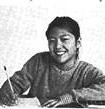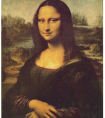When I was a teenager growing up in Russia, I felt studying very boring, I wanted to leave school and have my own life. There were only two ways for me to do th-九年级英语
题文
 When I was a teenager growing up in Russia, I felt studying very boring, I wanted to leave school and have my own life. There were only two ways for me to do this—working in the toy factory in my town, or getting married. I chose the first one. I was nervous when I told my father that I wanted to leave school. I thought he would say, “No! You are going to college.” Instead, he took me by surprise when he said, “OK. We’ll go to the toy factory.” Two days later, he took me to the factory. I had a very romantic idea of working in a factory. I had imagined everyone to be friendly working together and having fun. I even imagined there would be music and singing. I guess I had watched too many movies as a teenager. When we arrived at the factory gates, my father spoke to the guard and one minute later we went inside. My father said, “Take your time. Look around.” I walked around the factory, looking at the buildings, the workers, and listening to the noise. It was terrible. I ran back to my father and said, “I want to go home.” He asked me, “What do you think of the factory?” “It’s terrible,” I replied. “And you have another choice, but I think getting married is even worse!” he said. I went back to school the next day. From then on, I studied as hard as I could. Finally I got into a good college. I enjoyed studying English so I decided to major in languages at college. Thanks to my father and our trip to the factory, I now work at the United Nations and my father is very proud of me. I married a very good man and my life is much better than it would have been working in the factory! 小题1:The writer lived in ________ when she was a teenager.
|
答案
小题1:A 小题2:B 小题3:B 小题4:D |
试题分析:作者在这篇短文中介绍了她自己在小时候不爱上学,后来父亲亲自带她去工厂参观,改变了她的浪漫想法,从而开始努力学习。最终在英语方面取得不凡的成就,去了联合国工作。 小题1:根据When I was a teenager growing up in Russia,描述可知选A。 小题2:根据I had a very romantic idea of working in a factory.及下文描述可知他认为在工厂的生活会比学校的生活更多姿多彩,故选B。 小题3:根据It was terrible. I ran back to my father and said, “I want to go home.”及上下文描述,可知作者做个改变了他的浪漫想法。故选B。 小题4:根据I now work at the United Nations and my father is very proud of me.他父亲因为她在联合国工作而骄傲,故选项D表述错误。 点评:本文浅显易懂,各个小题都能在文中找到适当依据。只要认真阅读短文,注意前后联系,就能顺利完成阅读。文章所设试题主要考察细节查找,做题关键是找出原文的根据,认真核查小题和原文的异同。 |
据专家权威分析,试题“When I was a teenager growing up in Russia, I felt studying ..”主要考查你对 人物传记类阅读,故事类阅读 等考点的理解。关于这些考点的“档案”如下:
人物传记类阅读故事类阅读
考点名称:人物传记类阅读
- 人物传记类阅读:
本类型选材主要是名人轶事。
人物传记的叙述线索也常常以时间为序。内容一般不是一个人的生活流水账,而是选取主人公一些重要的人生阶段或生活片段来展开叙述。
阅读时要把握主人公在此阶段发生的事对他本身或他人有什么重要的意义和影响。
考点名称:故事类阅读
故事类阅读:
文章一般描述的是某一件具体事情的发生发展或结局,有人物、时间、地点和事件。
命题往往从故事的情节、人物或事件的之间的关系、作者的态度及意图、故事前因和后果的推测等方面着手,考查学生对细节的辨认能力以及推理判断能力。
阅读这类材料时,同学们一定要根据主要情节掌握文章主旨大意,同时抓住每一个细节,设身处地根据文章内容揣摩作者的态度和意图,根据情节展开想象,即使是碰到深层理解题也可迎刃而解。- 故事类阅读注意:
初中生接触到的阅读材料大都是故事类。
阅读故事类的材料,应该抓住人物线索、地点线索、时间线索和情节发展线索。
特别注意的是,以上线索往往是并存的。因为情节的发展总是涉及到人物的变化、时间的推移、场景的变换等。
而阅读材料后的阅读理解往往会围绕这些内容设计一些事实类的理解题。
凡事实类的理解题都可以从阅读材料的表层文字中找到答案。
在阅读故事类短文时,应理解文章的深层含义,也就是它的主题。在此需要注意的是,现在的阅读理解题在测试事实类的理解题的同时,往往有一道推理类理解测试题.
- 最新内容
- 相关内容
- 网友推荐
- 图文推荐
上一篇:Mr Clarke works in a middle school. He likes reading and often __小题1:__ some books from the library. He __小题2:__ to the radio every morning and reading __小-八年级英语
下一篇:Once, there was a beautiful girl who didn’t like herself, because she was blind, she couldn’t see anything. In fact, the girl 1nobody except her boyfriend, fo-九年级英语
零零教育社区:论坛热帖子
| [家长教育] 孩子为什么会和父母感情疏离? (2019-07-14) |
| [教师分享] 给远方姐姐的一封信 (2018-11-07) |
| [教师分享] 伸缩门 (2018-11-07) |
| [教师分享] 回家乡 (2018-11-07) |
| [教师分享] 是风味也是人间 (2018-11-07) |
| [教师分享] 一句格言的启示 (2018-11-07) |
| [教师分享] 无规矩不成方圆 (2018-11-07) |
| [教师分享] 第十届全国教育名家论坛有感(二) (2018-11-07) |
| [教师分享] 贪玩的小狗 (2018-11-07) |
| [教师分享] 未命名文章 (2018-11-07) |






